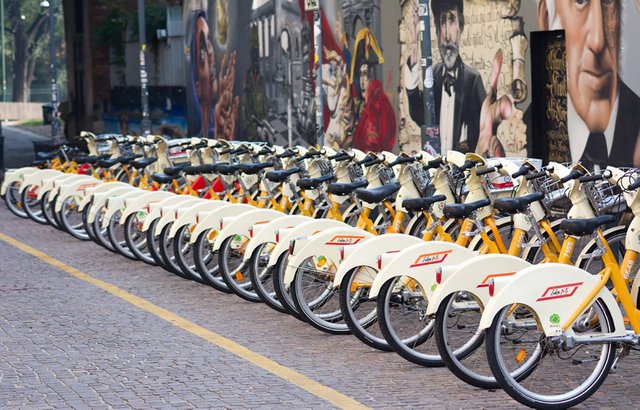
While the Dockless Bike Share industry in China has hit a roadblock, it’s still in the race. Ofo and Mobike, the two largest players backed by Alibaba and Tencent take the model global, in the face of some stiff opposition and competition.
By Archana Khatri Das
Bicycles are no longer the underdog of the streets. Technology-backed rides with a colourful frame and GPS tracking system that automatically records date, time, and distance travelled, have become extraordinarily popular wherever introduced. The popularity of bike-sharing is largely due to convenience. A user downloads an app and makes the payment in real time. It then helps the user locate a bike within the vicinity, unlock or lock it by scanning the QR code with a smartphone, and pedals away.
Shared bikes, unlike traditional bike rental services like those in London and Paris, do not require users to return the bike to a designated docking station. The users are free to leave the bikes wherever their journey ends, which are then picked up by some other riders for their use. The growing popularity of these bikes is not just because they look cool and are convenient to use, bike-sharing is perceived to be the antidote to travel-related pollution and offers hassle-free last mile connectivity.
Ofo and Mobike of China, which are the most successful of bike-sharing brands to-date, reportedly offer rides costing as little as 15 cents for 30 minutes.
The transformation of bikes being perceived as the default mode of transport for the poor, to a conscientious and convenient transport began in China. As the Chinese economy grew, the aspirations of car ownership by middle-class Chinese became a reality. From ‘The Kingdom of Bicycles’, as it was once renowned for, China quickly morphed into ‘Car Kingdom’.
When China became the world’s largest new car market by 2010, major traffic congestion and toxic smog became a part of everyday life in major city centres. The necessity for a quicker and cleaner mode of transport resulted in a bicycle renaissance and the shared bike scheme was borne. Offering on-demand flexibility with a low price point made bike sharing the most favoured alternative transport in China.
A research paper by the World Conference on Transport, in Shanghai 2016, claimed that China had the largest bike-share market by the end of 2016, with a fleet of 858,000. Ofo and Mobike, the two biggest players backed by Alibaba and Tencent respectively, each valued at more than USD 1 billion, which each boasting a fleet of more than 7 million bikes in over 150 cities in and outside of China. With the runaway success of shared bike scheme in China, venture capitalists clamoured to fund bike-share start-ups. As per industry reports, there were more than 60 start-ups vying for market share in 2015...
...to read more, visit https://indvstrvs.com/chinas-bike-share-industry-faces-uphill-hike/